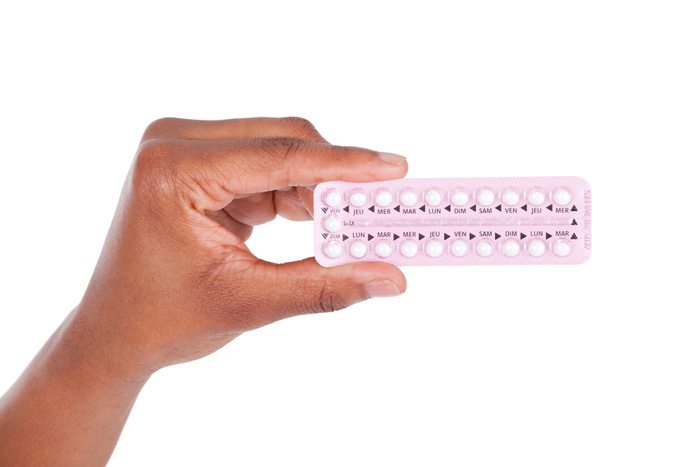A Right to Contraception Without Access Is a Disaster for the Black Community
Black women already have low and inconsistent use of birth control due to access barriers, and Monday's Hobby Lobby decision is one more that puts effective care out of financial reach for many in need.

This piece is published in collaboration with Echoing Ida, a Forward Together project.
Read more of our coverage on the Hobby Lobby and Conestoga Wood cases here.
On Monday, the Supreme Court issued a landmark decision in the case of Burwell v. Hobby Lobby, likely affecting access to contraception for millions of women across the country.
In a 5-4 decision, the Supreme Court justices decided that “closely held” for-profit corporations are exempt from the Affordable Care Act’s contraception benefit under the Religious Freedom Restoration Act of 1993. This ruling represents a huge blow for the reproductive health, rights, and justice movements and employees across the country that depend on their health benefits to cover the growing cost of health care for their families, and it disproportionately affects a number of vulnerable groups, including families with dependents who rely on birth control and Black women.
One of the major issues argued in the case was around the companies’ desire to deny access to two forms of intrauterine devices (IUDs) and two brands of emergency contraception, which the owners of the corporations believe cause abortions. As Rewire Senior Legal Analyst Imani Gandy has pointed out, the challengers to the contraception mandate simply don’t understand how these forms of contraception operate. The contraceptive methods don’t cause abortion, they prevent pregnancy.
The IUD is considered the most effective contraception available on the market today, but it is expensive, costing anywhere from $500 to $1,000 without insurance. According to the Centers for Disease Control and Prevention, 78 percent of Black women have used birth control pills in their lives, while only 6 percent have tried an IUD. Prior to the Affordable Care Act’s contraception mandate, IUDs were cost-prohibitive and Black women were unable to access them without an assist from their health insurance provider.
In her dissenting opinion, Justice Ruth Bader Ginsberg noted that accessing contraception would be prohibitive for minimum-wage employees, who earn at little as $7.25 per hour and the majority of whom are women. Black women make up nearly 16 percent of female minimum-wage workers, and policies like this one will disproportionately affect them and the families they support.
“It bears note in this regard that the cost of an IUD is nearly equivalent to a month’s full-time pay for workers earning the minimum wage,” Ginsberg writes.
In an interview with MSNBC, Hobby Lobby attorney Lori Windham notes that employees can still purchase birth control with their own money—yet she fails to note that for minimum-wage earners this could equal the cost of a month’s rent.
The denial of access to certain types of birth control is a vile insult to basic bodily autonomy and is disrespectful of people, particularly Black women, making their own decisions about their personal health care.
According to a 2013 poll, the Black community stands firm in its support of access to contraception, with 86 percent believing that contraception is part of basic health-care services for women. This belief is supported by over 90 percent of self-identified Black conservatives and those who attend religious services weekly. And with over 80 percent of Black women between the ages of 15 and 44 using contraception, and over half of the Black community receiving private health insurance, mostly through an employer, this decision means that more “closely held” companies have the authority to deny contraception to Black Americans. As with all women, Black women use birth control for both medical conditions and to prevent pregnancy—but Black women have a maternal mortality rate three times that of white women. When employers deny access to birth control, they are actually putting Black women’s lives in danger.
Not only is this decision going to affect the employees of Hobby Lobby and the 71 companies filing similar lawsuits—it also affects the lives of their families who depend on them for health insurance. As I noted in a speech outside the Supreme Court during the case’s March 2014 oral arguments, many people receive health insurance through a parent, partner, or guardian—and with the passage of the Affordable Care Act, many more young people are staying on their parent’s health insurance until they turn 26 years old. This means young people will lose access to the most effective forms of birth control and emergency contraception.
Black women already have low and inconsistent use of birth control due to access barriers, and this decision is one more that puts effective care out of financial reach for many in need.
The Court’s decision also challenges access to emergency contraception, which can be purchased over the counter, but also without a co-pay when purchased with a prescription and health insurance. Black women have the highest rates of unintended pregnancy in the country and one in five Black women will experience rape in her lifetime. Access to emergency contraception can provide the autonomy we most certainly need in light of such realities for us.
As a society, we must make a commitment to support women making reproductive decisions for themselves and support access to all options, no matter what our personal opinions are. People, namely workers and their family members, have the right to exercise their own religious beliefs and health-care decisions, which for Black families includes birth control.
Let’s never forget: It isn’t actually a right if you don’t have access.
